Preventing Urinary Tract Infections (UTIs): What You Need to Know
Posted by Pankaj Dhiman on Jan 11th 2024
Beat the Burning: Conquering UTIs with Prevention Tips & Tricks
Urinary tract infections (UTIs) are incredibly common, affecting millions of people in the United States each year. While UTIs can be painful and disruptive, the good news is that they are often preventable. In this blog, we'll delve into everything you need to know about UTIs, from understanding the causes and symptoms to practical tips on how to keep them at bay.
Must Read: Home IV Therapy: What You Need to Know in 2024
Who is at risk for UTIs?
UTIs are more common in women than men, with anatomical differences being a key factor. Women have shorter urethras, making it easier for bacteria to reach the bladder. Additionally, hormonal changes during pregnancy, menopause, and menstruation can increase susceptibility to UTIs. Other risk factors include:
- Using a diaphragm or spermicide for birth control
- Having a catheter inserted into the bladder
- Having kidney stones or other urinary tract blockages
- Having a weakened immune system
- Diabetes
- Sexual activity
Must Read: Medical and Surgical Tape: Benefits, Uses, and 10 Top Products for Your Needs
Symptoms of UTIs
The classic symptoms of a UTI include:
- Frequent and urgent urination, even when there is little urine to pass
- Burning or pain during urination
- Bloody or cloudy urine
- Pelvic pain or pressure
- Feeling feverish or nauseous
Must Read: How to Treat Common Wounds at Home: A Step-by-Step Guide
Preventing UTIs: Your Best Defense
While UTIs can be unpleasant, the good news is that there are several things you can do to prevent them:
- Hydrate, hydrate, hydrate: Drinking plenty of water throughout the day flushes bacteria out of the urinary tract. Aim for at least eight glasses of water per day.
- Empty your bladder frequently: Don't hold on to pee! Holding urine allows bacteria to multiply in the bladder. Aim to urinate every two to four hours.
- Wipe front to back: After using the toilet, wipe from front to back to prevent bacteria from entering the urethra.
- Urinate after sex: Empty your bladder after sex to flush out any bacteria that may have been introduced.
- Choose cotton underwear: Loose-fitting, breathable cotton underwear helps keep the genital area dry and discourages bacterial growth.
- Cranberry juice: While not a magic bullet, cranberry juice may help prevent UTIs by preventing bacteria from sticking to the bladder wall. Choose unsweetened cranberry juice or cranberry supplements without added sugar.
- Probiotics: Taking probiotics may help keep the balance of good and bad bacteria in the urinary tract, reducing the risk of infection.
- Avoid irritating products: Steer clear of harsh soaps, douches, and feminine hygiene products that can irritate the urethra and bladder.
Must Read: Buy Halyard Sterilization Wrap - Top 10 Picks
When to See a Doctor
If you experience any symptoms of a UTI, it's important to see a doctor for diagnosis and treatment. Untreated UTIs can lead to serious complications, so don't hesitate to seek medical attention.
Must Read: 7 Essential Medical Supplies Every Healthcare Facility Should Have
Living UTI-Free
By following these simple tips, you can significantly reduce your risk of UTIs and maintain a healthy urinary tract. Remember, prevention is key! So, stay hydrated, listen to your body, and don't be afraid to see a doctor if you think you might have a UTI.
By taking proactive steps and making healthy lifestyle choices, you can keep UTIs at bay and enjoy a life free from discomfort and inconvenience.
Must Read: Vanguard Nitrile Exam Gloves - Buy online at Great Prices
Bonus Tips:
- Consider using a bidet: Bidets can help wash away bacteria after urination, further reducing the risk of UTIs.
- Wear looser clothing: Tight clothing can trap moisture and create a breeding ground for bacteria.
- Manage stress: Stress can weaken the immune system, making you more susceptible to infections.
- Talk to your doctor about your individual risk factors: Depending on your medical history, your doctor may recommend additional preventive measures.
Remember, knowledge is power when it comes to your health. By understanding UTIs and their prevention, you can take control and live a UTI-free life!
I hope this blog has been informative and helpful. Please share





























































